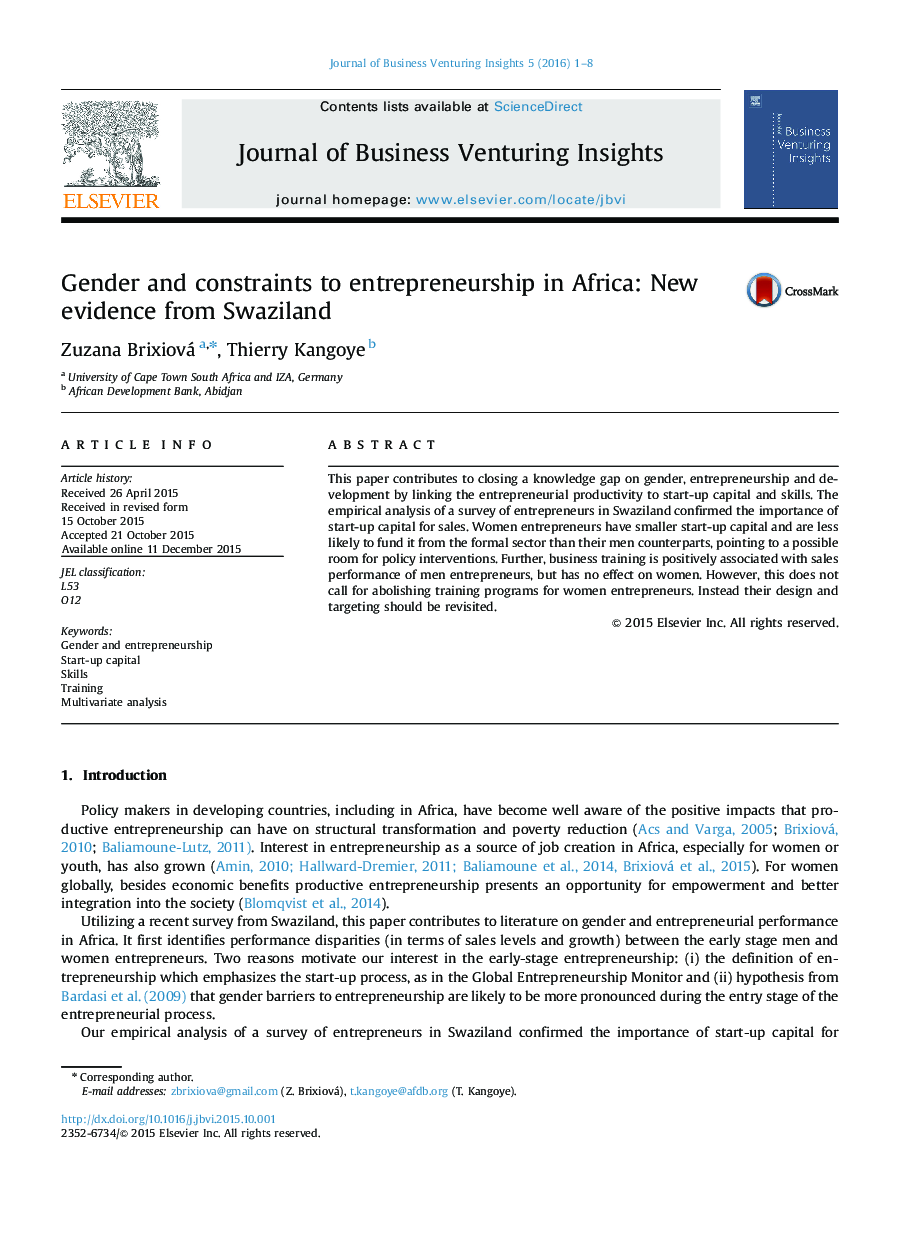| کد مقاله | کد نشریه | سال انتشار | مقاله انگلیسی | نسخه تمام متن |
|---|---|---|---|---|
| 1019898 | 1482871 | 2016 | 8 صفحه PDF | دانلود رایگان |
• This paper contributes to the empirical literature on gender, entrepreneurship and development by linking the entrepreneurial productivity to start-up capital and skills.
• Our analysis of survey of entrepreneurs from Swaziland showed that women entrepreneurs have smaller start-up capital and are less likely to fund it from the formal sector than men. Further, business training is positively associated with sales performance of men entrepreneurs, but has no effect on women entrepreneurs.
• The differences in start-up capital point out to a possible room for interventions and their causes should be further examined. The design and targeting of training programs should be revisited.
• The empirical evidence contained in this paper can lay foundation for further conceptual and theoretical research on the topic.
This paper contributes to closing a knowledge gap on gender, entrepreneurship and development by linking the entrepreneurial productivity to start-up capital and skills. The empirical analysis of a survey of entrepreneurs in Swaziland confirmed the importance of start-up capital for sales. Women entrepreneurs have smaller start-up capital and are less likely to fund it from the formal sector than their men counterparts, pointing to a possible room for policy interventions. Further, business training is positively associated with sales performance of men entrepreneurs, but has no effect on women. However, this does not call for abolishing training programs for women entrepreneurs. Instead their design and targeting should be revisited.
Journal: Journal of Business Venturing Insights - Volume 5, June 2016, Pages 1–8
